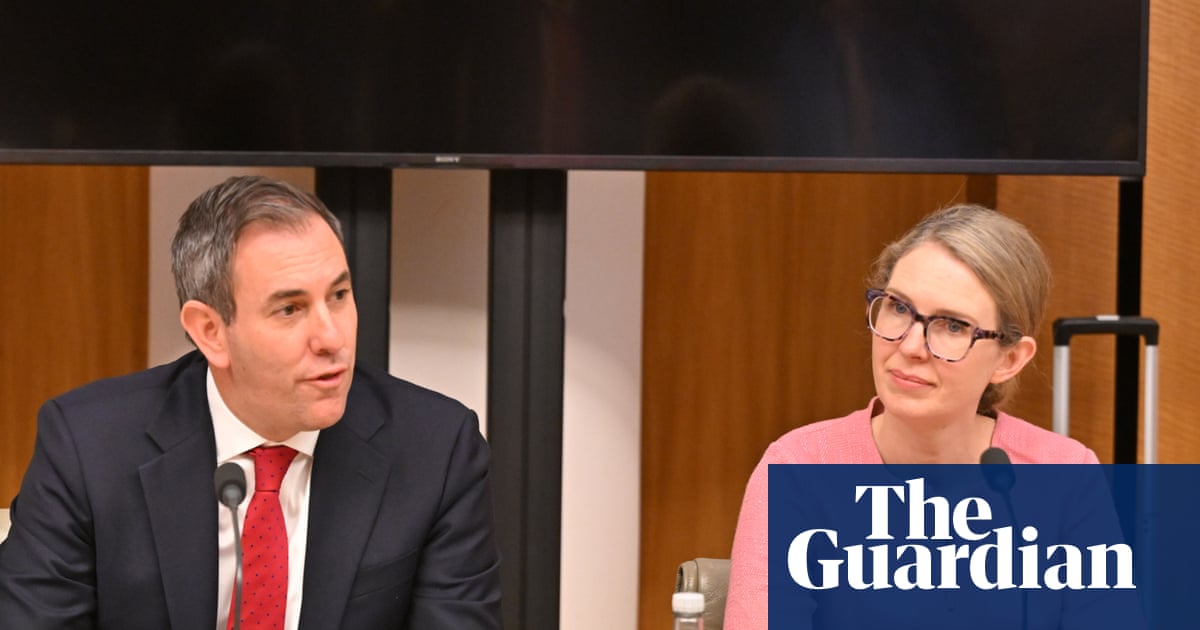Tuesday marks the start of the treasurer’s economic reform roundtable, bringing together business, unions and decision makers at Parliament House.
Jim Chalmers and the prime minister, Anthony Albanese, will host the event, charged with finding consensus on ways to boost Australia’s sluggish productivity, improve the sustainability of the federal budget and strengthen the economy to grow.
Following the jobs and skills summit at the start of Labor’s first term, the three-day cabinet room roundtable could help guide the new parliamentary term and debut major reform ideas ahead of the next federal election.
What problem is the roundtable trying to solve?
Productivity in Australia has barely grown in the past decade. The measure of output across the economy, productivity growth is considered one of the main drivers of higher living standards for households.
In 2003-2004, productivity was growing at 1.8% per year. That figure dropped to 0.9% in 2022-23.
Sign up: AU Breaking News email
The former Treasury boss Ken Henry estimated the cost of sluggish productivity at about $500,000 in lost wage rises for workers since 2000. The Productivity Commission (PC) estimates full-time workers could be $14,000 a year worse off in a decade if growth does not pick up.
Who is invited?
The guest list includes some of the biggest names in the Australian economy. Labor has chosen 23 core attenders and invited 25 others for specific sessions.
The Reserve Bank of Australia governor, Michele Bullock, the PC boss, Danielle Wood and the Treasury secretary, Jenny Wilkinson, will each open one day of the discussions.
Steven Kennedy, the secretary of the Department of the Prime Minister and Cabinet, the New South Wales treasurer, Daniel Mookhey and the Australian Competition and Consumer Commission chair, Gina Cass‑Gottlieb, will also attend.
Union officials including Sally McManus and Michele O’Neil from the ACTU will take part, along with the Australian Council of Social Service boss, Cassandra Goldie, energy expert Kerry Schott and former Treasury boss Henry.
Business figures include: the Tech Council chair, Scott Farquhar; the CBA boss, Matt Comyn; Woodside board member Ben Wyatt; along with representatives of the Business Council of Australia, Australian Chamber of Commerce and Industry, the Australian Industry Group and the Council of Small Business Organisations of Australia.
The shadow treasurer, Ted O’Brien, will represent the Coalition. Teal MP and tax reform advocate Allegra Spender is the only independent invited.
What will be discussed?
The roundtable is organised around three themes: resilience, productivity and budget sustainability and tax reform.
Chalmers has called the summit “a really important opportunity” and he will challenge participants to think big.
“We intend to make the most of it … We will be gathering people of vast experience and expertise,” he said.
“It’s an important opportunity to confer with them about the big challenges in our economy.”
Hundreds of ideas have been proposed by invitees, individuals and organisations around the country. The ACTU called for a four-day working week to be on the agenda, while the Western Australian independent Kate Chaney has pushed for the GST to be lifted to 15%The Business Council wants a short, sharp tax review run before the end of the year.
Chalmers has said all along he does not want to shoot down ideas before the talks formally begin. He has coordinated dozens of pre-roundtable meetings by cabinet ministers in recent weeks, as Treasury officials mulled more than 900 submissions. In the lead-up, Chalmers also met business leaders and state and territory treasurers.
There were some guardrails for the talks: Chalmers said ideas had to be either budget neutral or budget positive, in the national interest, as well as specific and practical.
The Australian Competition and Consumer Commission chair, Gina Cass-Gottlieb, is among the guests. Photograph: Blake Sharp-Wiggins/The GuardianWhat will Labor act on?
The government has given strong signals it will move to cut regulation slowing down building approvals, including in housing. Chalmers wants to speed up approvals for as many as 65,000 new homes.
A pause on changes to the national construction code is expected, while changes to the Environment Protection and Biodiversity Conservation Act could be sped up.
Labor is also set to phase in a set of road user charging rules to cover electric vehicles. Declining fuel excise revenue, now collected when motorists fill up their petrol tank, is hurting the budget New rules will raise revenue from EVs and hybrids.
The rise of AI is a key issue. Chalmers has promised to achieve a middle road between new stand-alone AI laws and the government letting technological developments run free.
What’s off the agenda?
Albanese and Chalmers have struggled to manage expectations for the summit, which initially sparked enthusiasm about a new round of tax reform, including consideration of the first changes to the GST in 25 years.
But Albanese said earlier this month the only tax policy the government would consider “is the one that we took to the election,” seriously dampening expectations.
The PC suggested giving big tech companies an exemption to copyright laws for “text and data mining” in AI. That idea prompted fierce pushback from arts, creative and media companies and the government has signalled changes in this area are not a priority.
When will we know what’s happening?
Chalmers plans to make some initial announcements as soon as the roundtable wraps up on Thursday night. He said areas of consensus could spark immediate priorities, while he is also looking for long-term reform directions to pursue.
“This is all about three days to inform the next three budgets and beyond,” he said.

